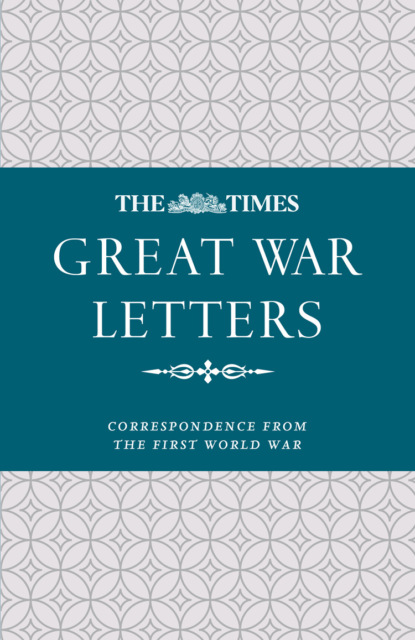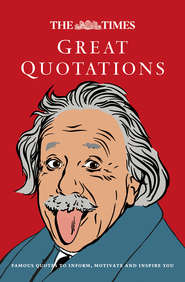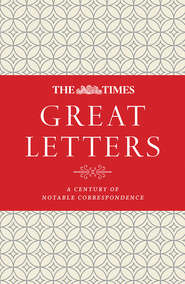По всем вопросам обращайтесь на: info@litportal.ru
(©) 2003-2024.
✖
The Times Great War Letters: Correspondence during the First World War
Автор
Год написания книги
2019
Настройки чтения
Размер шрифта
Высота строк
Поля
A LAST TALK WITH LORD ROBERTS
16 November 1914
SIR,—AS I WAS PROBABLY one of the last persons who saw Lord Roberts, outside of his family, on Tuesday night, the day before he left for the Continent, I think it might interest the public to know what were almost the last words be spoke in England in a public capacity. He had granted me an interview for the Echo de Paris, and, before giving me his views on the situation and on the work done by the French Army, he spoke of his visit to France on the morrow and of the reasons for which he was going over to see Sir John French. I have not, in my interview, reported everything he said there, for one at least of his utterances seemed to me to interest solely England. But to you it will certainly be very interesting.
Lord Roberts said that, while the primary reason of his visit was to see his dear Indian troops (of which he was Colonel-in-Chief), he intended to speak to General French about the too great secrecy which was, to his mind, kept by the military authorities at the front and at home concerning the work and the brave deeds of the English soldiers.
“I naturally approve,” said Lord Roberts, “that all the military movements, whatever they be, should be kept absolutely secret from all war correspondents; but it seems to me that they should be allowed to receive at least a fair modicum of information. Why not allow them to write, for instance, in detail of the glorious actions fought by our troops, several days, it goes without saying, after these actions have taken place? I am referring naturally to the English lines. You in France are in a position different from us. You have conscription. Every man is called to the Colours, and you do not rely on the public enthusiasm to recruit your Army, which can very well afford to be ‘la grande silencieuse.’ In England we want men, many more men, and if we do not let our people at home know in detail of the life of our soldiers at the front, of their brave fights and gallant deeds, how shall we awake in the soul of our young men the high sentiment of emulation which will strongly contribute to lead them to the recruiting office? They are brave, no doubt, willing to offer their lives to their country if necessary. But they often do not know that it is absolutely necessary, and that every minute they lose now is a priceless minute, maybe a battle jeopardized in the future. They do not know enough that our men are always fighting against tremendous odds, that we want more men and still more men to equalize matters. They are not sufficiently able to follow day by day—as much, at any rate, as the military necessities would allow it—the life and the fighting of their friends who have enlisted. What has been done for the London Scottish might to my mind be done with great good result for many of the other units, and I will talk to French about it.”
I thought, Sir, that these views would certainly interest you. Lord Roberts spoke strongly and felt, I have no doubt of it, the urgent need of more “advertisement” for the Army, although he did not utter the word, if England was going to get all the men she wants.
It does, perhaps, not become me as a foreigner to broach upon these matters. We value, in France, too highly the value of the English alliance to think of—I would not say criticizing—but even scrutinizing too closely the methods, through which England has got together and increases every day her valiant Army. It is England’s sole business, and nobody in my country would presume to intrude upon these matters. But, knowing the deep interest which is felt in the matter here, I thought it was almost my duty to let you know what he said about it. I have therefore—let me say it once more—only expressed Lord Roberts’s views on a subject on which I personally have none, would have none, and on which I heard no Frenchman ever venture an opinion.
May I add that Lord Roberts expressed that which gave me infinite pleasure—the highest opinion of the French Army, of the French generals, and of General Joffre in particular. He spoke highly, too, of the French gun—“as a gunner,” said he—of the wonderful power of our 75. He added that he knew very well that France had had up to now to hold the longest line of battle, that all her men able to carry arms had been drafted into the Army, that part of France had suffered terrible devastation. But he added that we should shortly feel the effects of the great support which England was preparing to give us.
I am, Sir, your obedient servant,
GASTON DRU
“FOLLOW YOUR PRINCE”
19 November 1914
SIR,—THE APPEALS FOR recruits are too long and not simple enough. I suggest the following, printed in bold type:—“The Prince of Wales is at the front. Men are badly wanted to save the country. Enlist and follow your Prince.”
Yours faithfully,
HENRY F. DICKENS
SIR OLIVER LODGE ON THE SOUL’S SURVIVAL
24 November 1914
SIR,—IN VIEW OF THE eminent position of Sir Oliver Lodge and the prominence you have given in The Times of to-day to the report of his statement that he has obtained definite scientific proofs of the continued existence of some of his dead friends, I ask for permission to request him not to delay longer the publication of his promised information regarding the nature of the proofs on which he bases this announcement.
Sir Oliver’s belief that he has talked with the dead has been published before this; and this is not the first time he has been challenged to produce his proofs to the scientific world. But hitherto he has confined himself to the mere reiteration of his conviction of the reality of his discovery.
That a serious statement of this kind, on such a grave subject, solemnly given forth ex cathedra by a professor of science, must surely have harmful results on the minds of many needs no argument. Numerous mental wrecks have been occasioned by so-called “spiritualistic” studies among the large class of persons who are ready to believe most of what they hear. It is not too much to say that, unless Sir Oliver Lodge is prepared to submit his evidence to competent judges, the reiteration of his claim to have talked with the dead is unjustifiable and even inexcusable.
Your obedient servant,
H. BRYAN DONKIN
Lodge was an eminent physicist who came to believe that the spirit lived on after death in an invisible substance that he thought filled the universe: ether.
ST. ANDREW’S DAY AT ETON
24 November 1914
SIR,—IT HAS BEEN decided to transfer the usual fixtures on St. Andrew’s Day at Eton to Saturday, November 28. This has been done for the benefit of the very large number of Old Etonians serving in the forces, for whom Saturday is a much more convenient day for getting leave.
The Wall match will begin at the usual time; and there will be an Old Etonian match in the afternoon.
Yours faithfully,
ANTHONY BEVIR, Captain of the School
IN CASE OF A RAID
3 December 1914
SIR,—THERE IS CONSIDERABLE talk in East Anglia and Essex of the martial spirit of the civilian inhabitants and of the deeds they mean to perform against invading Germans if they get the chance. This martial spirit is creditable, but it cannot be too clearly stated that at the present time a civilian’s martial spirit can only be properly shown in one way.
That way is to enlist in the Regular Forces.
The Germans have not fought according to the rules of civilized warfare as laid down at The Hague. But in this regrettable fact we can find no excuse for imitating them. It is against the rules of civilized warfare for civilians to attempt to kill soldiers. Single snipers would expose their villages to reprisals whose nature we know; and, further, no bands of snipers formed suddenly in an emergency would have the slightest chance of being recognized by the enemy as combatants.
Moreover, the majority of potential snipers could only be armed with a shot-gun, a weapon hopelessly outranged by, and practically useless against, the military rifle.
But there is a stronger reason against civilian fighting. As the military representative on the Emergency Committee which has charge of a large district as dangerously situated as any, I have received a personal positive instruction from the General Officer commanding the South Midland Division that the military authorities absolutely discountenance, and strongly object to, any form of civilian fighting. The arrangements to repel a raid are in their hands; the responsibility is theirs; and any man who acts contrary to their wishes must thereby confuse their plans, impede their operations, and endanger their success.
Any civilian who wants to help against a raid should go to the chairman of his parish council, and through him offer his services to the Emergency Committee of his district. The details of the very exhaustive and elaborate arrangements are now being completed, and there is, or will be, should the moment come, sufficient work to employ all male civilians with wit enough to understand the high value of hearty and obedient cooperation. It would perhaps be impolitic to publish particulars, but the chairman of every parish council has full information and is in a position to allocate duties.
Any civilian, whatever his motive, who tries to repel a raid on his own initiative and by his own devices will be guilty of an act essentially unpatriotic.
ARNOLD BENNETT, Military Representative on the Emergency
Committee of the Tendring Division (Essex)
WOMEN DOCTORS AND THE WAR
5 December 1914
SIR,—AMONG THE MOST urgent national necessities of the moment is an ample supply of experienced, and well-trained doctors—and there is a very marked shortage. Many of our best physicians and surgeons have already gone to the front and as their ranks are thinned by the inevitable wastage of war many more are prepared to follow.
To some extent medical women are already filling the vacancies thus caused at hospitals and other institutions, and are proving themselves equal to their professional and administrative duties. Partly in consequence of the present emergency it has become apparent that the demand for the services of medical women is greatly in excess of the supply. In addition to this the principal missionary societies are suffering from the impossibility of obtaining sufficient medical women to staff their hospitals and dispensaries, and a similar difficulty exists at home in the case of various departments of the public service.
May we not hope that when this urgent demand for women doctors is realized by the public many women of good birth, education, and ability will be desirous of entering the medical profession? It is certain that all such women cannot, and do not, expect to marry, and that in default of this most natural and desirable condition of life some women must seek other spheres of usefulness. From an experience of medical life now verging on 40 years, I venture to think that no career could offer greater happiness and satisfaction to a woman, nor greater opportunities of practical usefulness, than medicine. I should like to point out that women medical students need not of necessity be very young. The more mature woman has certain great qualifications for the task; her verbal memory may not be so strong as that of her juniors, but her trained mind, experience of life, and general savoir faire are of considerable service to her as a student and still more as a practitioner.
That women are capable of rendering efficient professional aid is proved by the fact that at the present time several hospitals officered entirely by women are at work in the theatre of war, and that the services of these medical women are much appreciated by their professional brethren and by their patients.
I am, Sir, faithfully yours,
MARY SCHARLIEB
THE TREATMENT OF THE GERMAN WOUNDED
8 December 1914








